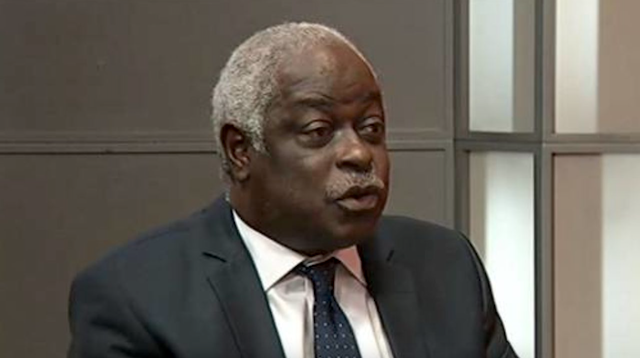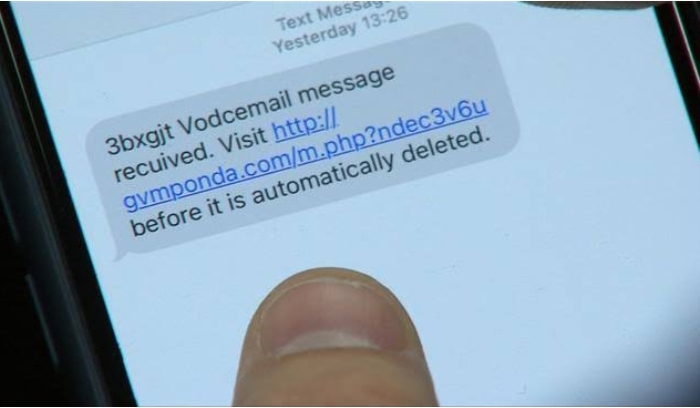A Federal High Court in Abuja, on Monday, fixed March 27 for trial-within-trial in the Economic and Financial Crimes Commission (EFCC)’s suit against Malabu Oil and Gas Limited and seven others.
Other defendants in the criminal charge marked: FHC/ABJ/CR/268/2016 include A Group Construction Company Limited; Rocky Top Resources Limited; Megatech Engineering Limited; Novel Properties and Development Company Limited as 2nd to 5th defendants respectively.
Others are Imperial Union Limited; Carlin International Nigeria Limited and the oil mogul, Mr Aliyu Abubakar, listed as 6th to 8th defendants respectively.
Justice Inyang Ekwo fixed the date following an agreement between EFCC’s counsel, Ofem Uket, and Abubakar’s lawyer, Chief Wole Olanipekun, SAN, on adopting the proceeding in the trial-within-trial of a sister case also before the court.
In another criminal charge marked: FHC/ABJ/CR/39/2017 and filed by EFCC, the former Attorney-General of the Federation (AGF) and Minister of Justice, Mohammed Adoke, and Abubakar are 1st and 2nd defendants.
Abubakar, a businessman, had alleged that in the course of his investigation by the EFCC, he made statements under duress and was also induced to implicate others.
The development made the court to order a trial-within-trial in the suit number: FHC/ABJ/CR/39/2017 and the proceeding was completed and adjourned for ruling.
Upon resumed hearing in the matter against Malabu Oil and others, Olanipekun informed that he had discussed with Uket on adoption of the proceeding in the trial-within-trial in the sister case since the main defendant in the two cases was Abubakar, his client.
The senior lawyer said the decision was in compliance with Section 46 of the Evidence Act.
He said since witnesses had been taken in the sister case and the court had been addressed and the matter already reserved and adjourned for ruling, it was necessary to adopt the other proceeding in order not to waste the time of the court.
“And in case we have additional witness, he (Uket) can call him because it will be frustrating to go through the same witnesses when we are all here,” he said.
Olanipekun told the court that Uket informed him that he had only one additional witness to call.
The anti-graft lawyer confirmed Olanipekun’s submission.
Uket, therefore, agreed to adopt the proceeding in the sister case and call the remaining witness to speak on the statement written.
He said why he had to call additional witness was that in the sister case, six statements were involved while in the instant suit, seven statements were involved.
Justice Ekwo, who directed Olanipekun to file a motion for the adoption of the proceedings in the sister case, said this would afford Uket to respond accordingly.
The judge adjourned the matter until March 27 and March 28 for trial-within-trial.
EFCC had, on Sept. 8, 2020, re-arraigned Malabu Oil and Gas Limited and seven others on a 67-count amended charge bordering on money laundering to the tune of $875.7 million.
The defendants had pleaded not guilty to the charge that was read to them.
In the suit, EFCC alleged that “Malabu Oil alongside Dauzia Etete (Dan Etete), Seidougha Munamuna and Amaran Joseph, both directors of the company, who are currently on the run, “took control of the sum of $401,540,000 paid from the Federal Government of Nigeria Escrow Account No: 0041451493 IBAN 30CHAS609242411492 with JP Morgan Chase Bank in London into the account 2018288005 of Malabu Oil & Gas Limited domiciled with First Bank of Nigeria Limited.”
The anti-graft agency alleged that Malabu oil negotiated and signed the “block 245 resolution agreement with the Federal Government of Nigeria with Shell Nigeria Ultra Deep Limited, Nigerian National Petroleum Corporation, Nigeria Agip Exploration Limited, and Shell Nigeria Exploration and Production Company Limited, whereby taxes, accruals and royalties due to the federal government of Nigeria were unlawfully waived.”
NAN









